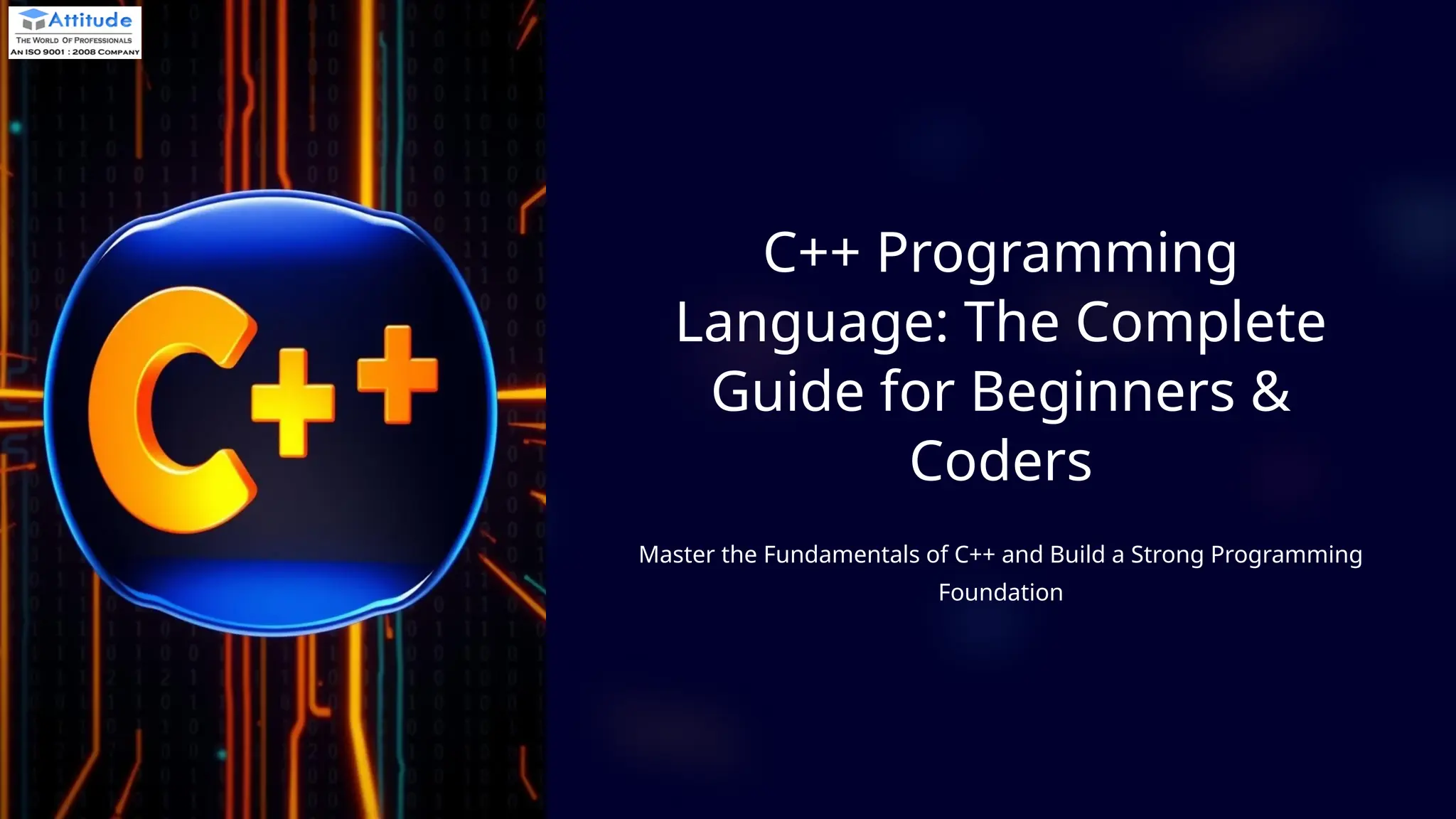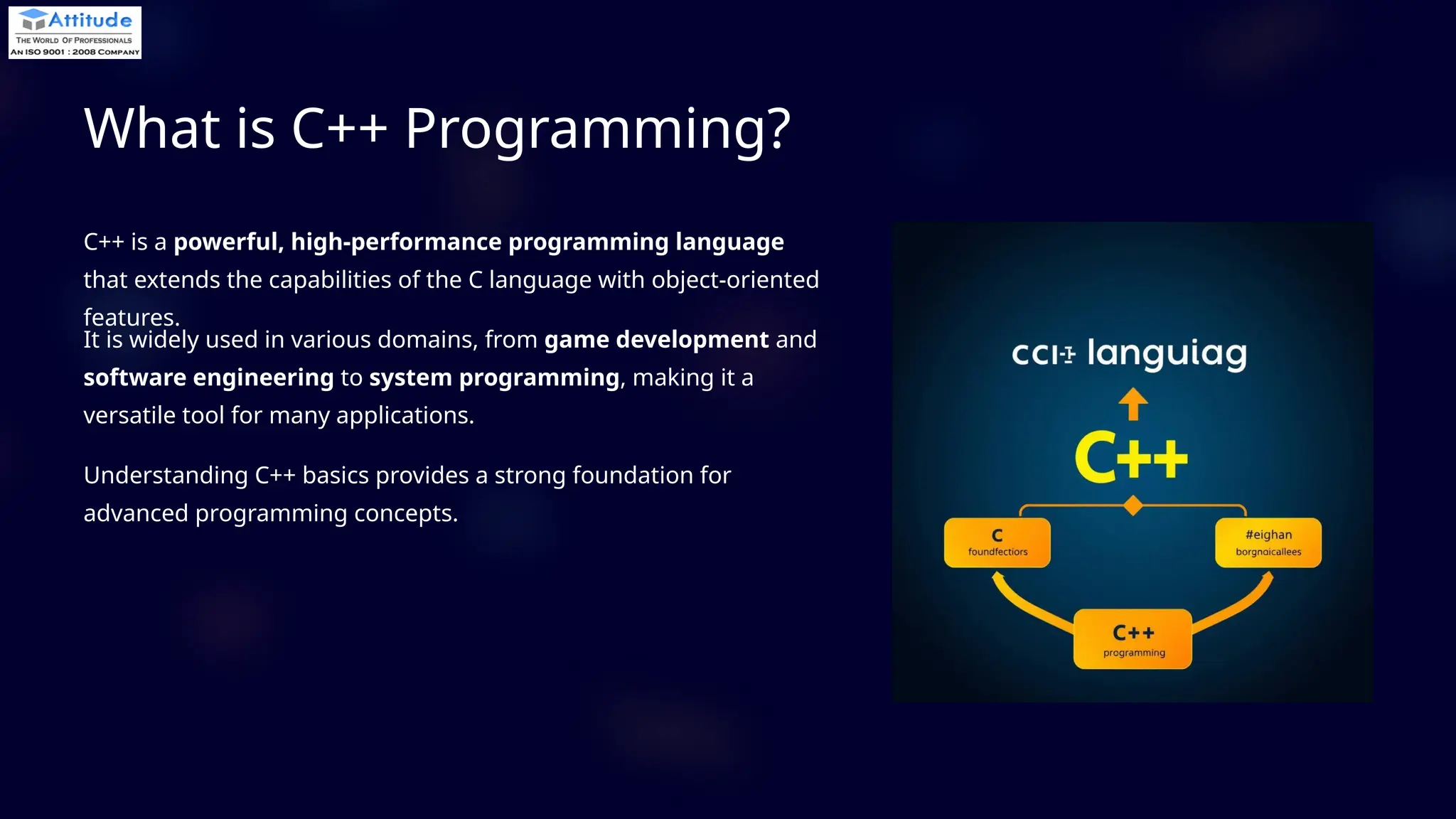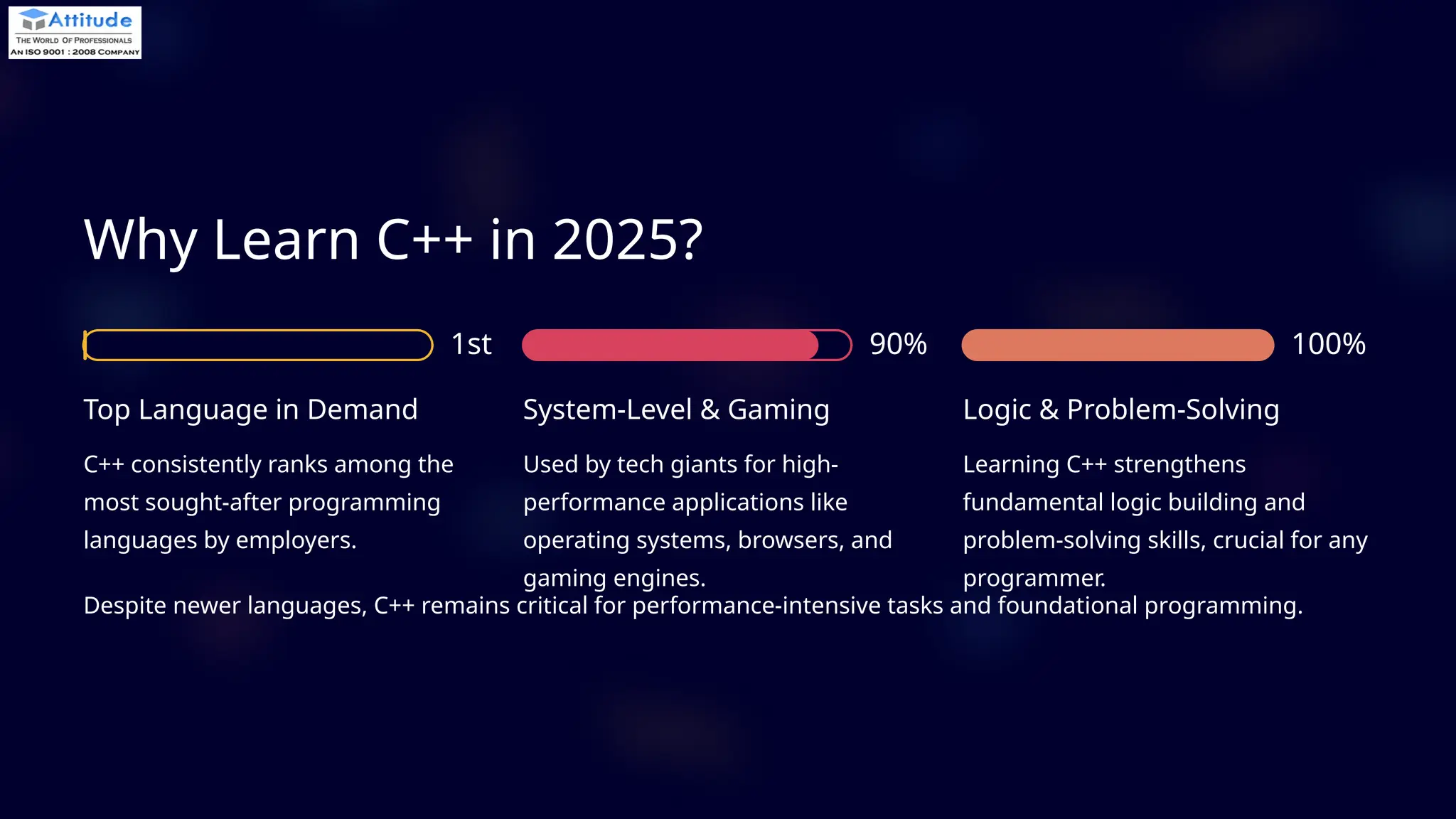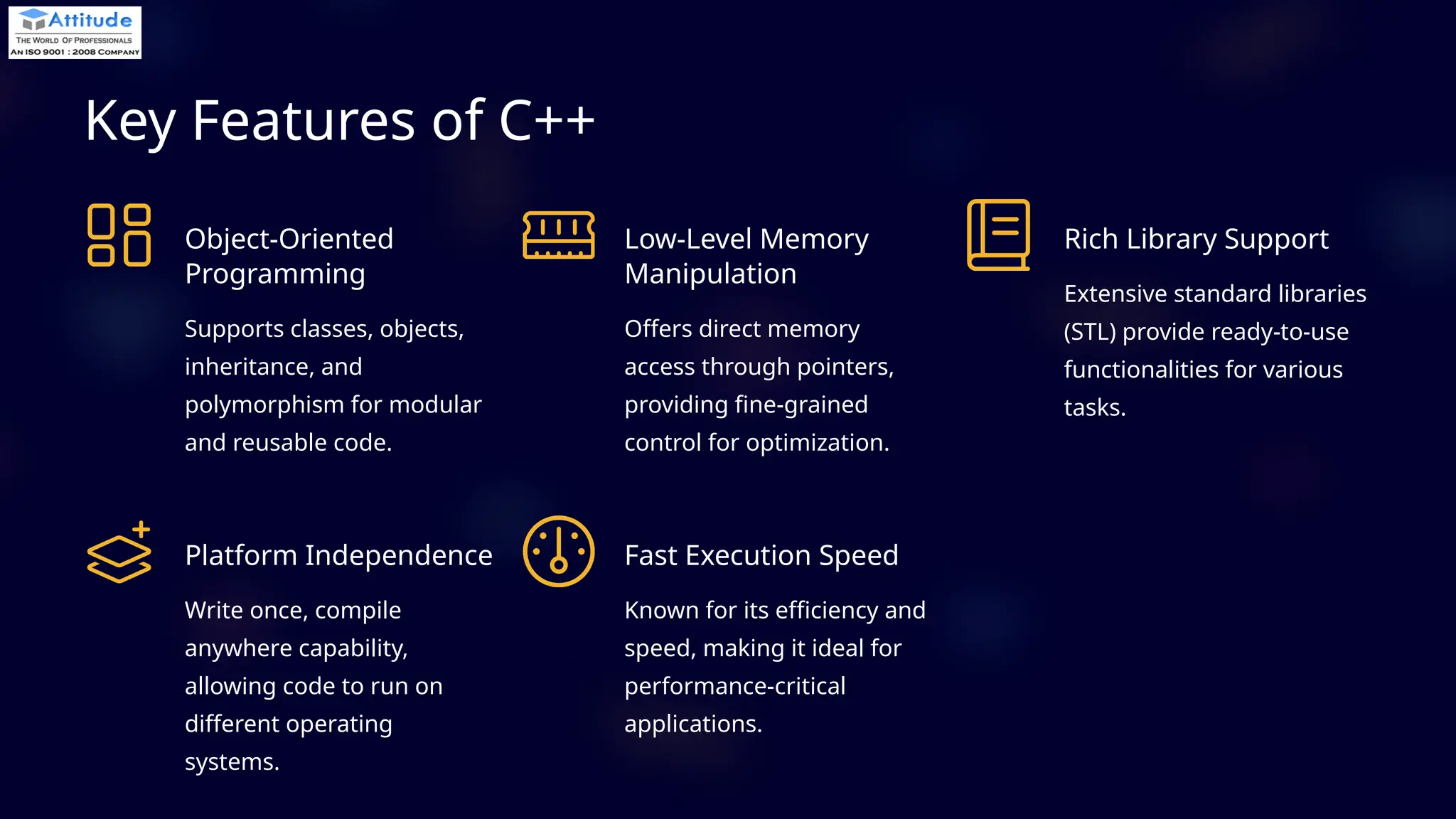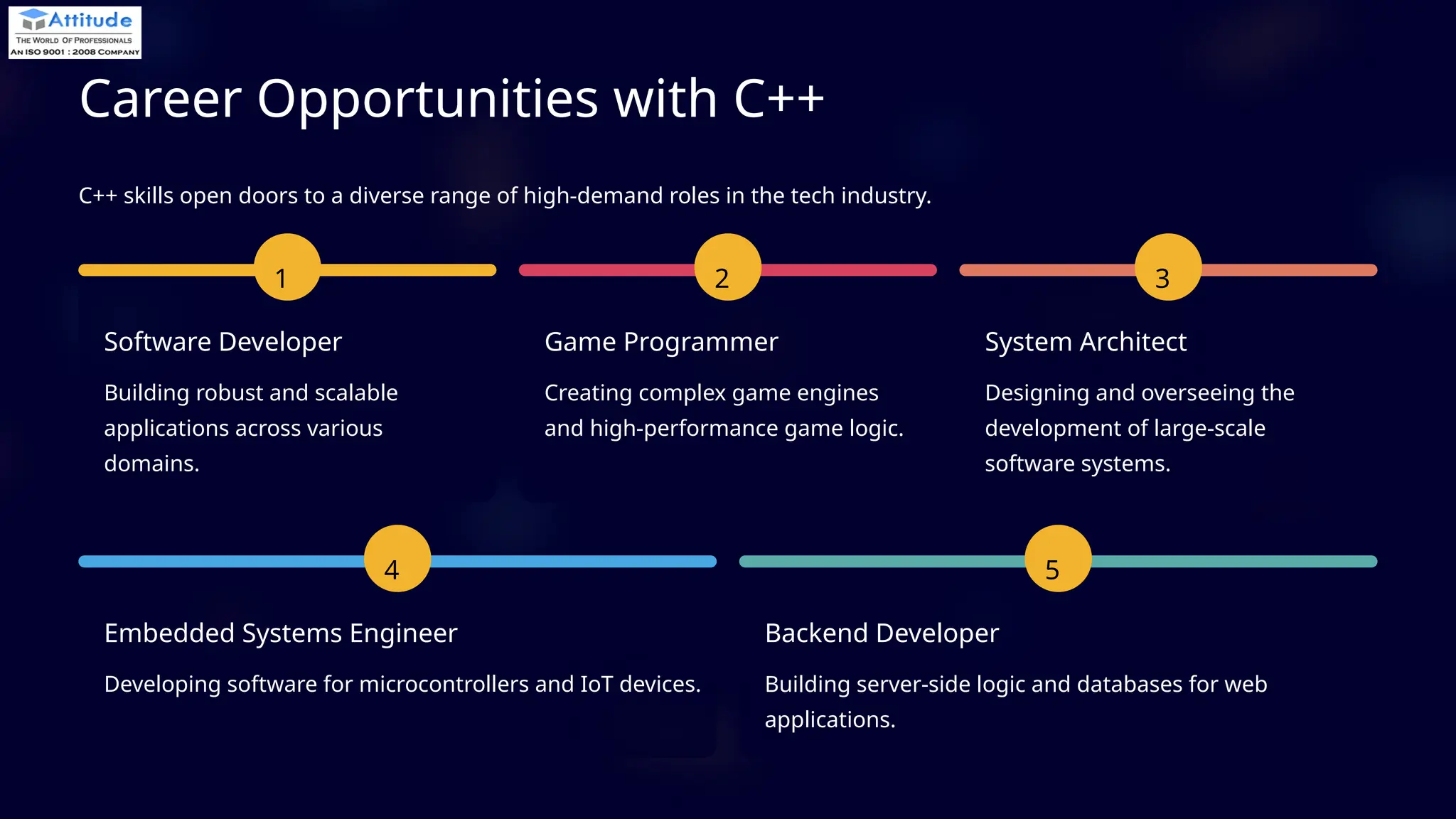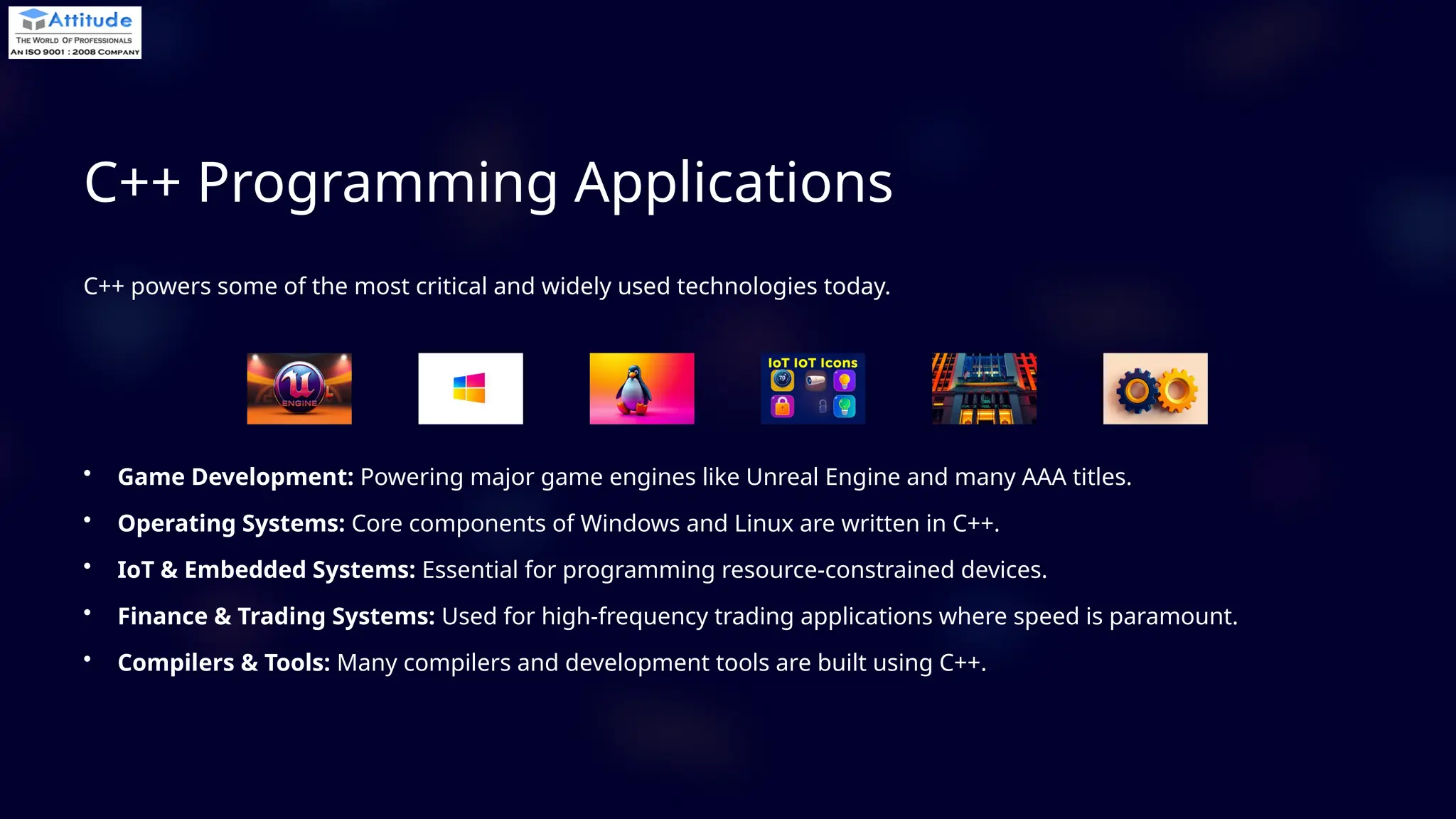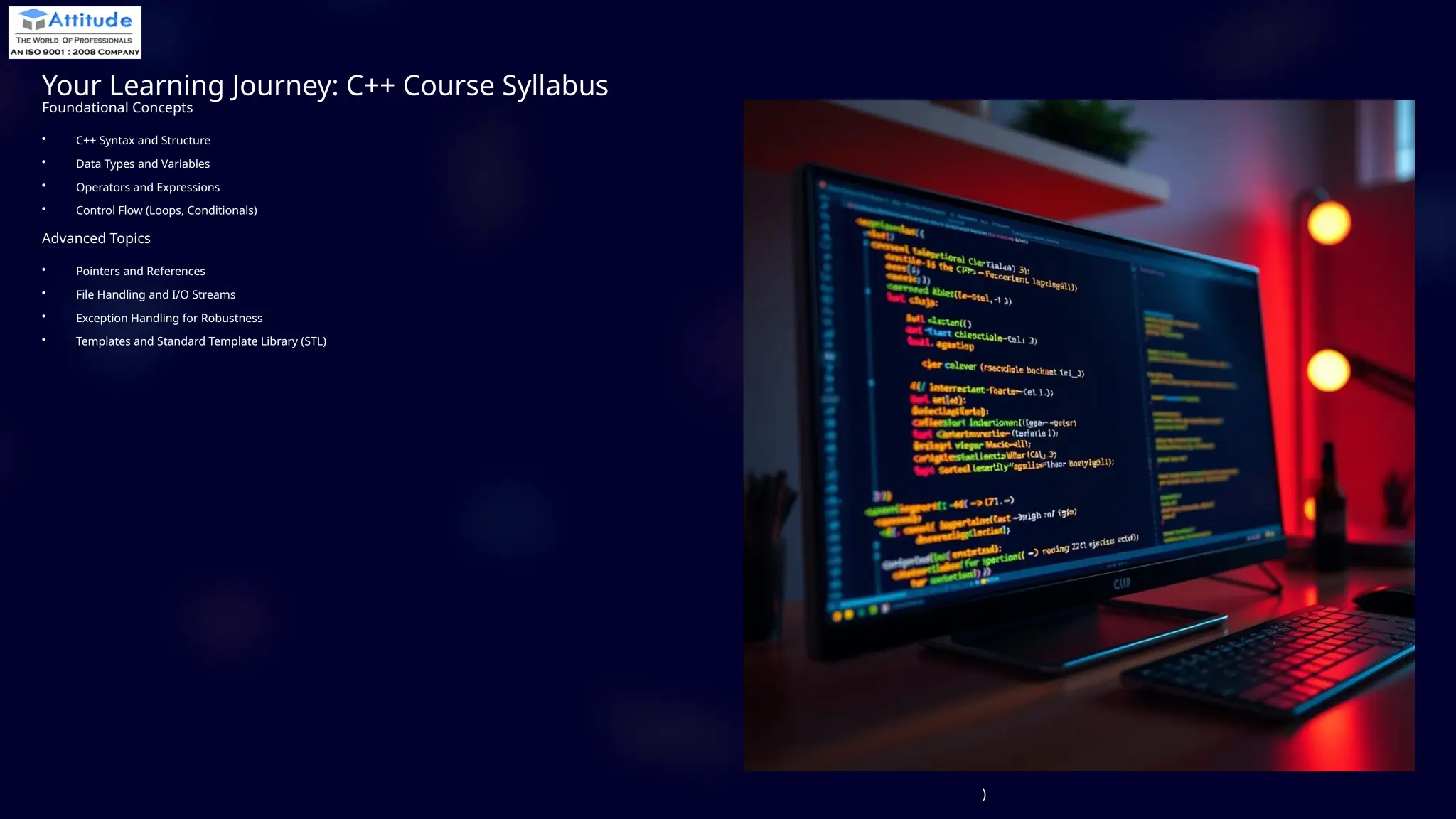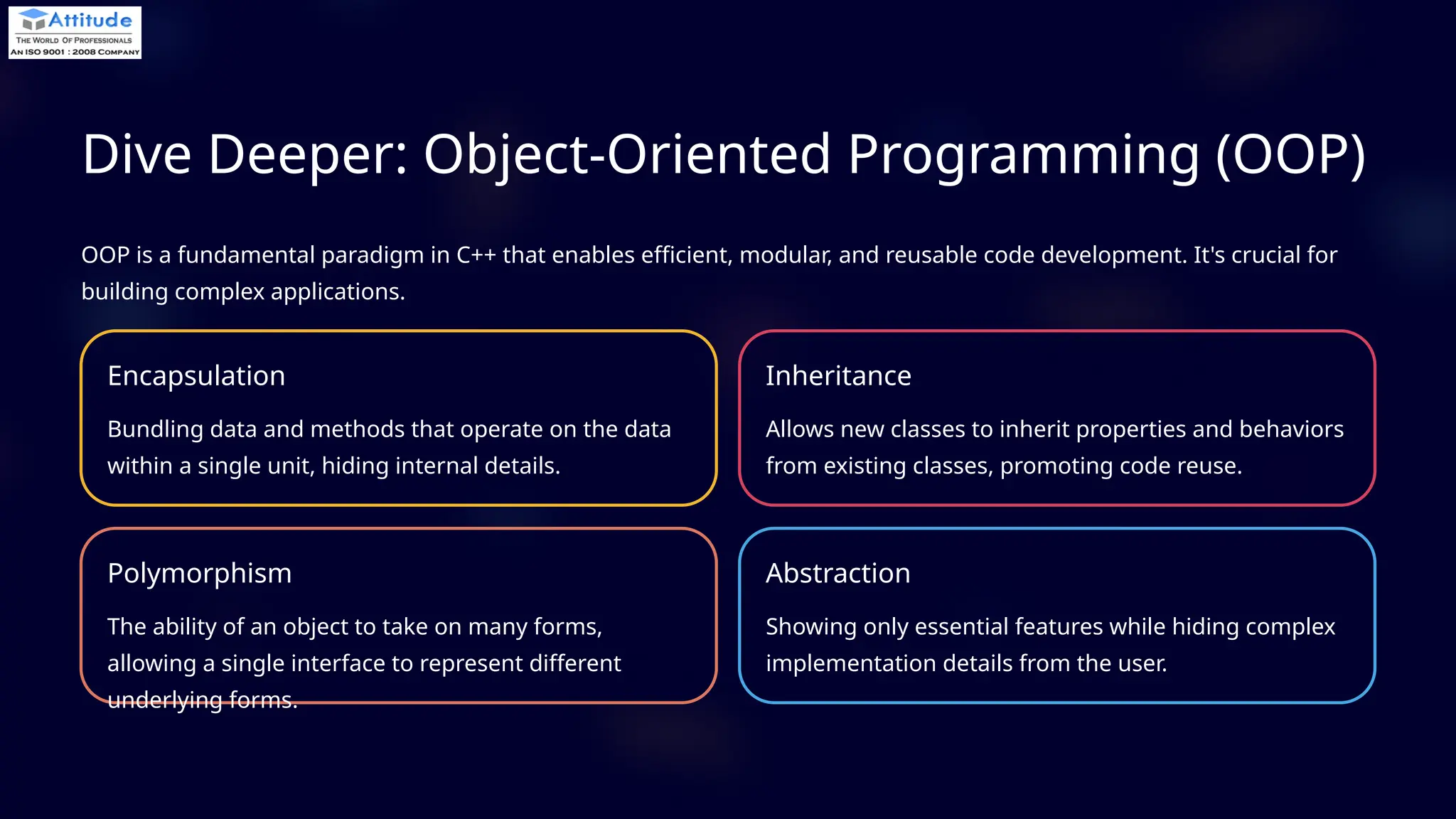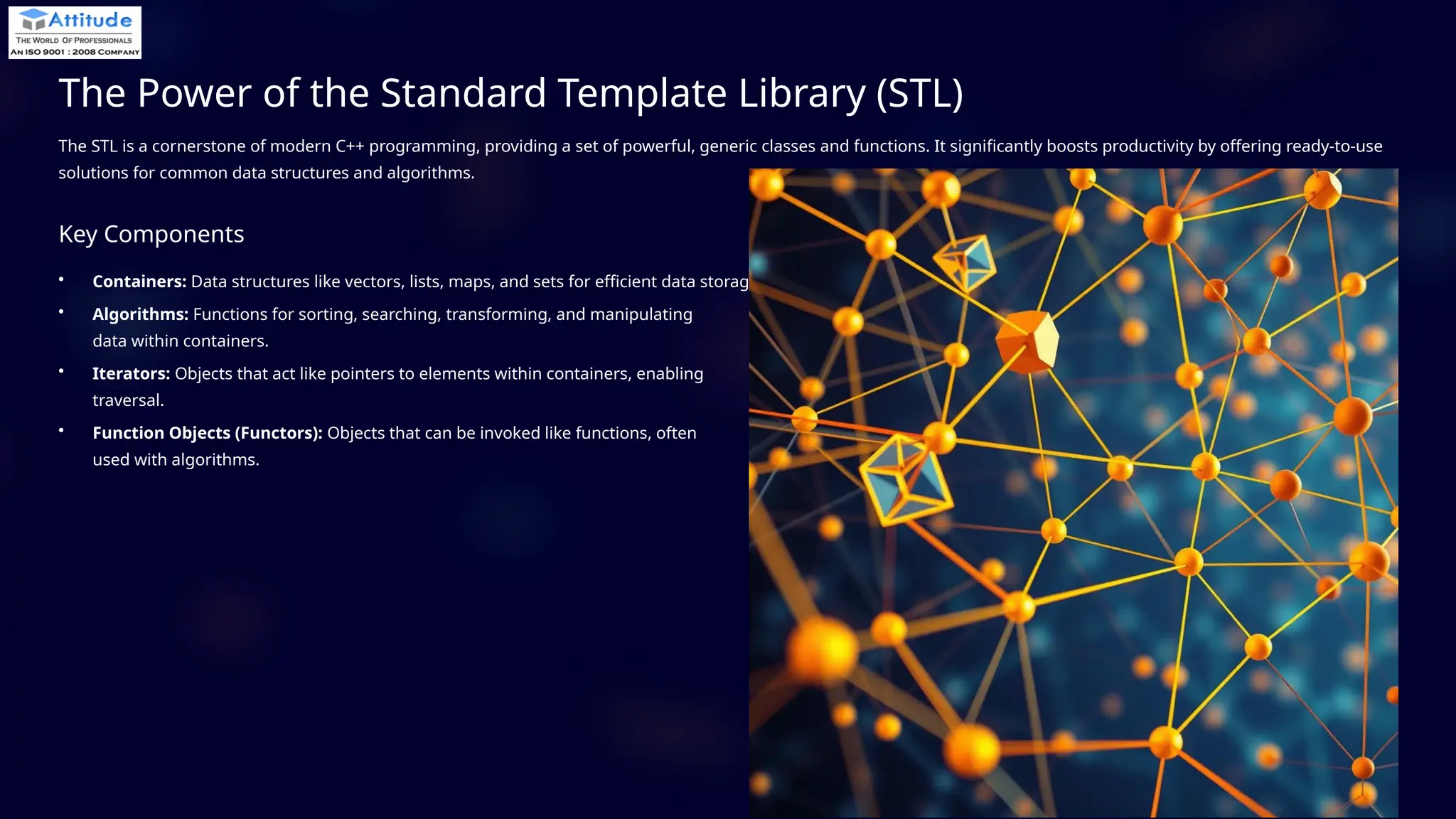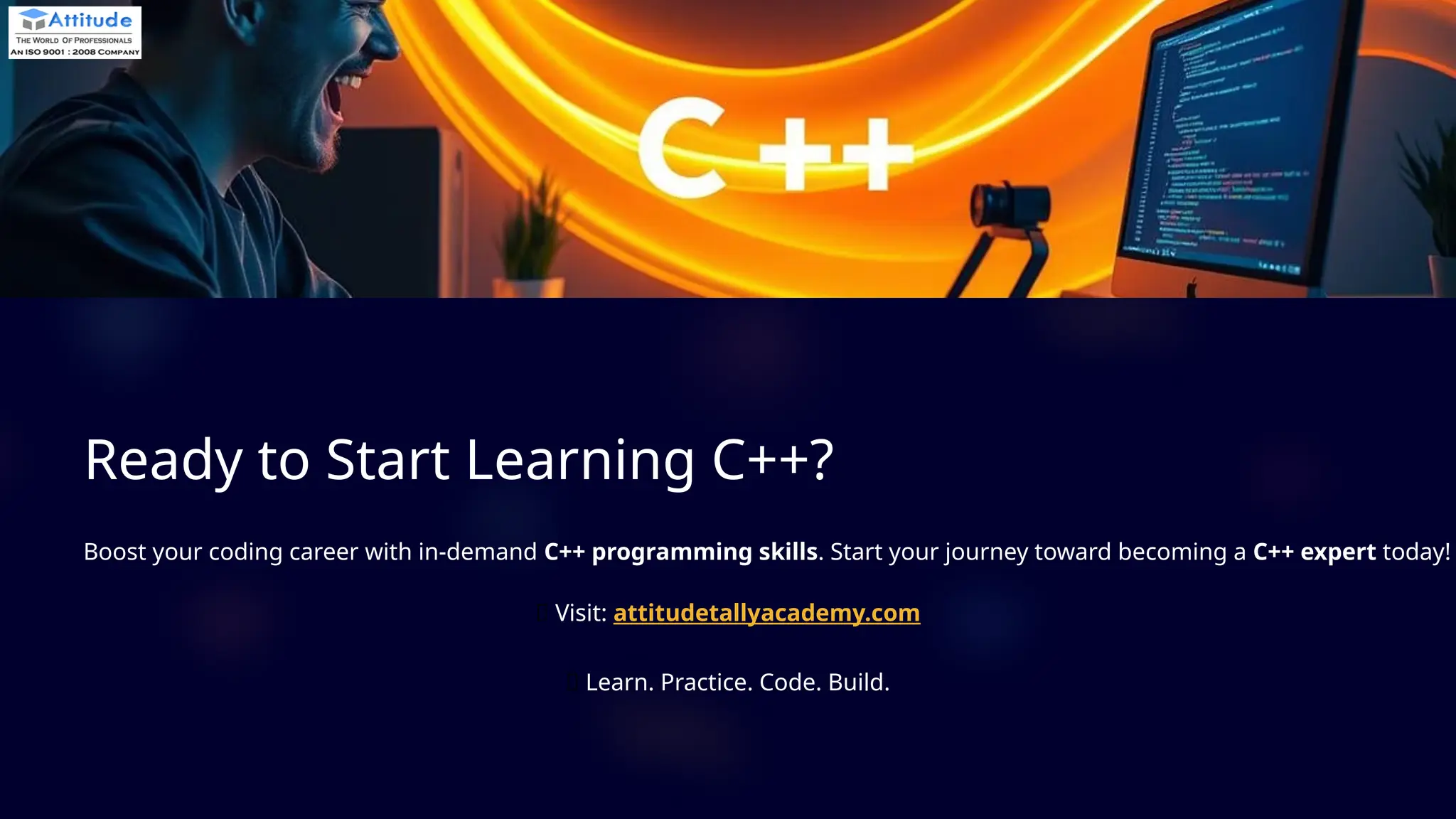C++ Programming Language: The Complete Guide for Beginners & Coders” is a detailed learning resource designed to help students, job seekers, and coding enthusiasts build strong programming skills. This PPT explains the core concepts of C++, including variables, data types, operators, control statements, functions, object-oriented programming (OOP), classes, inheritance, polymorphism, file handling, and pointers. It also covers data structures and algorithms to strengthen problem-solving abilities. Learners will gain insights into real-world applications of C++ in fields such as software development, game development, embedded systems, and competitive programming. The guide is created by Attitude Academy, Yamuna Vihar & Uttam Nagar, making it ideal for beginners starting from scratch as well as intermediate coders who want to advance their skills. This resource not only enhances technical knowledge but also prepares you for technical interviews, coding challenges, and IT career opportunities.
